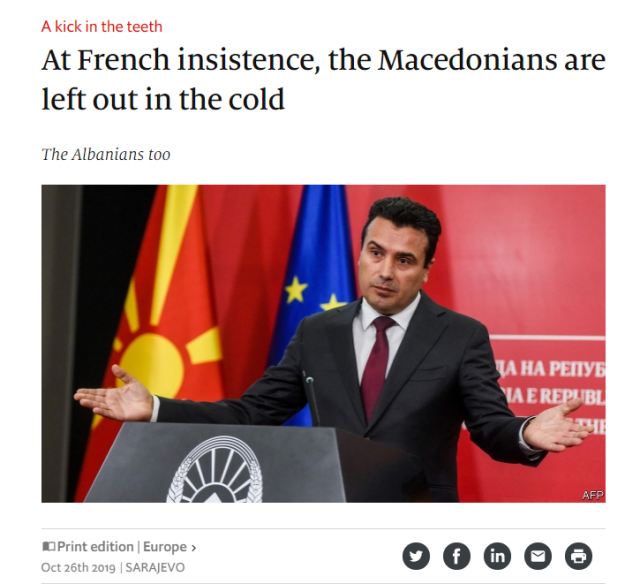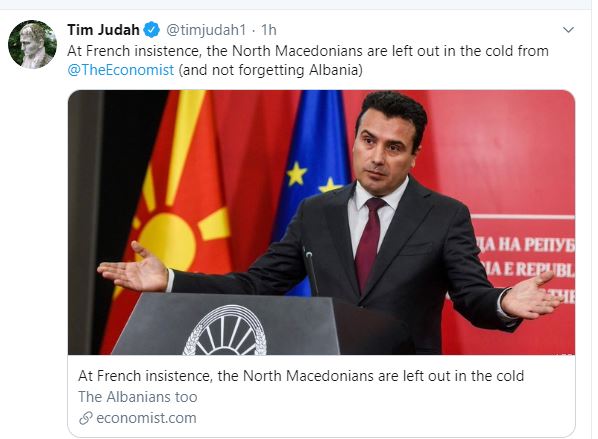“We pushed them to do it and then we showed them the finger”, an unnamed European diplomat told the Economist after the European Council’s defeat in Brussels.
According to the Economist, the article titled “At French insistence, the Macedonians are left out in the cold” says that France has made a bizarre decision to block EU enlargement that will shake the region. The paper also reports about the fall of Zaev’s government immediately after the European Council and predicts a possible victory for the opposition which is against the Prespa Agreement. The Economist reminds that the current Greek government is not satisfied with the agreement.
In the article by British journalist Tim Judah, he uses the term “North Macedonians”, contrary to Zaev’s government promises that the Prespa Agreement provided respect for the Macedonian identity in the world.

Even Judah himself, who was a strong promoter of the idea of changing Macedonia’s name, called on by Greek commentators in January this year he guaranteed that he would use the name Macedonians, not “North Macedonians”, a promise that did not last a year. After he was called on for the second time, this time by Macedonians on social networks, Judah announced he will ask the editors to change the title. A few hours later, the electronic version of the article was altered to refer to “Macedonians” in the title.

As a result of France’s blockade, the British paper warns that Russia, China and Turkey may increase their influence in the region.
On October 25th Serbia is expected to sign a free-trade agreement with the Russia-dominated Eurasian Economic Union. Russia is giving arms to Serbia. China and Turkey are expanding their influence. Blocking the Balkans is “a grave historic mistake,” said Jean-Claude Juncker, the European Commission president. “If we want to be respected, we have to keep our promises.”, The Economist reports.





Comments are closed for this post.